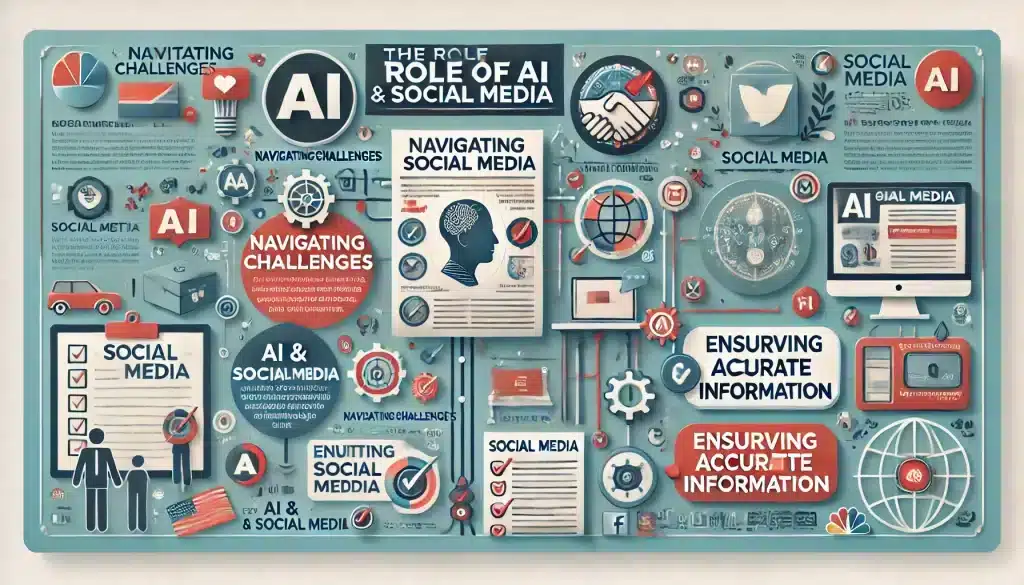In today’s rapidly evolving business landscape, the integration of artificial intelligence (AI) in sales strategies has become a fundamental aspect of maximizing return on investment (ROI). Sales teams are increasingly leveraging AI-driven insights to optimize their sales processes, enhance customer interactions, and improve overall sales performance. This article explores how AI tools can help boost sales efforts, the ROI of AI in sales, and best practices for integrating AI into your sales processes to reap significant benefits.
How Can AI Tools Help Boost Sales Performance?
Understanding the Role of AI in Sales
AI plays a transformative role in sales by enabling sales teams to make data-driven decisions that enhance their performance. By analyzing historical data, AI provides valuable insights that help sales reps understand customer behaviors and preferences. This understanding allows sales leaders to tailor their sales strategies to meet the unique needs of their customers. Moreover, AI tools automate routine tasks, freeing up time for sales teams to focus on high-value interactions that drive conversions. AI can help identify potential leads more effectively and prioritize them based on their likelihood to convert, thus optimizing the sales process.
Key AI Tools that Enhance Sales Engagement
There are a variety of AI tools available that can significantly enhance sales engagement. Customer relationship management (CRM) systems powered by AI can analyze vast amounts of data to provide predictive analytics on customer interactions. AI-driven chatbots, for example, interact in real-time with customers by answering queries and directing them to pass through the sales funnel, hence higher conversion rates. The other area is the application of predictive lead scoring through AI, where a sales team is in a better position to tell which leads to pursue more significant returns in their business. It enables them to distribute resources adequately. Organizations would, therefore, streamline the whole process and maximize the benefits.
Real-World Examples of AI in Sales
Many companies have successfully integrated AI into their sales processes, demonstrating its effectiveness in boosting sales performance. For instance, a leading e-commerce platform utilized AI-driven insights to personalize marketing strategies, resulting in a significant increase in conversion rates. Another example is a global software company that implemented predictive analytics to identify customer churn risk, enabling their sales reps to proactively address customer concerns and retain valuable clients. These real-world applications illustrate how AI can help sales teams optimize their efforts and maximize ROI.
What is the ROI of AI in Sales?
Calculating the Return on Investment for AI Technologies
Calculating the return on investment that AI in sales achieves is carried out by reviewing and analyzing many factors that relate to the performance and effectiveness of the AI technologies themselves. For example, measuring directly attributable increases in sales revenue via AI-driven insight, sales cycle time reductions caused by automation, and increases in conversion rates are ways for an organization to measure and make an effective calculation regarding ROI. By quantifying these changes, businesses can discover how AI impacts their bottom line.
Factors Influencing Sales ROI
Several factors influence the ROI of AI in sales, including the quality of data utilized, the specific AI tools implemented, and the extent of integration within the sales process. High-quality customer data is essential for AI to provide accurate and actionable insights. Furthermore, the alignment of AI solutions with existing sales strategies can enhance their effectiveness. Organizations that proactively incorporate AI into their sales efforts often experience higher returns, as they leverage data-driven insights to make informed decisions that drive results.
Case Studies on ROI of AI in Sales
Case studies highlight the significant ROI that businesses can achieve through the implementation of AI in sales. For example, a retail company that integrated AI-driven inventory management saw a 30% increase in sales efficiency by optimizing stock levels based on predictive analytics. Another case involved a financial services firm that used AI to automate lead generation, resulting in a 40% increase in conversion rates. These examples underscore the potential of AI to transform sales processes and drive substantial returns on investment.

How to Integrate AI into Your Sales Process?
Steps to Automate Sales Processes with AI
To integrate AI into the sales process, there needs to be a strategy. Organizations first need to find specific areas within their sales process that could benefit from automation. This might involve lead scoring, follow-ups with customers, or even data analysis. Then, the right AI tools need to be selected to achieve business goals. Training the sales team on how to effectively use these tools is crucial for successful integration. Finally, continuous monitoring and feedback should be implemented to refine AI applications and ensure they meet evolving sales needs.
Best Practices for Using AI-Driven Insights
To maximize the benefits of AI-driven insights, sales teams should adopt best practices that enhance their effectiveness. This includes regularly updating customer data to ensure accuracy, leveraging AI tools to analyze trends and patterns, and fostering collaboration between marketing and sales teams. Using AI to segment customers based on behavior can help tailor marketing strategies, leading to improved engagement and conversion rates. By adopting these best practices, organizations can optimize their sales processes and maximize the ROI of AI technologies.
Overcoming Challenges in AI Integration
Despite the numerous benefits of incorporating AI into sales processes, organizations may face challenges during integration. Common obstacles include resistance to change from sales teams, data quality issues, and the complexity of AI tools. To overcome these challenges, it is essential to involve sales reps in the AI implementation process, ensuring they understand the benefits and how to leverage AI tools effectively. Additionally, investing in data cleansing and management can enhance the quality of insights generated by AI, ultimately leading to a smoother integration process.
What Are the Benefits of Embracing AI in Marketing and Sales?
Impact of AI on Conversion Rates
AI has a profound impact on conversion rates by enabling sales teams to make more informed decisions. By utilizing AI-driven insights, sales reps can identify the most promising leads and focus their efforts on nurturing those relationships. AI also facilitates personalized marketing strategies, enhancing customer engagement and driving higher conversion rates. For example, sales teams that use AI to analyze customer preferences and behaviors can tailor their pitches, significantly increasing the likelihood of successful sales outcomes.
Optimizing Customer Interactions through AI
Optimizing customer interactions is another key benefit of embracing AI in marketing and sales. AI-driven tools can analyze customer data to provide insights into the best times and methods to communicate with prospects. By understanding customer preferences, sales teams can engage more effectively, leading to improved customer satisfaction and loyalty. Furthermore, AI can help automate routine interactions, allowing sales reps to focus on building stronger relationships with high-value clients.
Enhancing Sales Reps’ Productivity with AI
AI greatly increases the efficiency of salespeople by automatically taking care of many time-consuming activities. Through this automation, the sales teams will have ample time to be utilized in more strategic selling instead of administrative work. For example, AI can update CRM systems on customer interactions automatically, schedule meetings, and produce reports, hence leaving valuable time for sales reps to close deals. Organizations using AI solutions will hence realize improved sales productivity and revenue, leading to better returns on investment.
How Does Generative AI Transform Sales Strategies?
Utilizing Generative AI for Predictive Analytics
Generative AI is revolutionizing sales strategies by providing advanced predictive analytics capabilities. By analyzing historical data and current market trends, generative AI can forecast future sales patterns and customer behaviors. This predictive capability allows sales teams to proactively adjust their strategies to capitalize on emerging opportunities. For example, by using generative AI, businesses can anticipate shifts in customer preferences, enabling them to tailor their offerings and marketing efforts accordingly.
Driving Innovation in Sales Approaches with Generative AI
With generative AI, one has the capability of creating unique pieces of content or marketing materials for scale. Hence, the innovation in the sales approach is driven due to the possibilities of creating bespoke email campaigns as well as pitches meant for a selected audience segment to resonate with these people. Of course, there is increased relevancy and heightened engagement rates too. By embracing generative AI, organizations can stay ahead of the competition and continuously refine their sales strategies to meet the evolving needs of their customers.
Examples of Generative AI in Action
Numerous companies are successfully implementing generative AI to transform their sales strategies. For instance, a leading tech firm utilized generative AI to create customized product recommendations for customers, resulting in a remarkable increase in upselling and cross-selling opportunities. Another example is a content marketing agency that employed generative AI to produce tailored marketing materials, significantly enhancing client engagement and retention. These examples highlight the transformative potential of generative AI in optimizing sales strategies and maximizing ROI.



